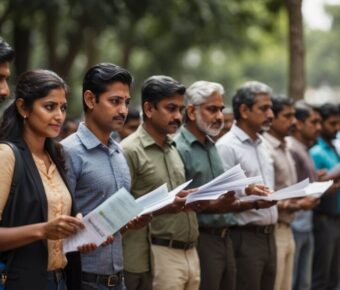
Schengen Visa Information for Bangladeshis: Essential Application Guide
Bangladeshi citizens with aspirations of traveling to Europe must navigate the Schengen visa application process to gain entry into the Schengen Area – a zone comprising 26 European countries that have abolished passport and all other types of border control at their mutual borders.
The Schengen Visa is a specialized travel document that permits its holder to travel freely within the Schengen Zone, allowing for short stays, which typically can sum up to 90 days within any 180 days. The uniformity of this visa negates the need for individual visas for each country, simplifying travel across some of the world’s most celebrated cultural and historical landmarks.
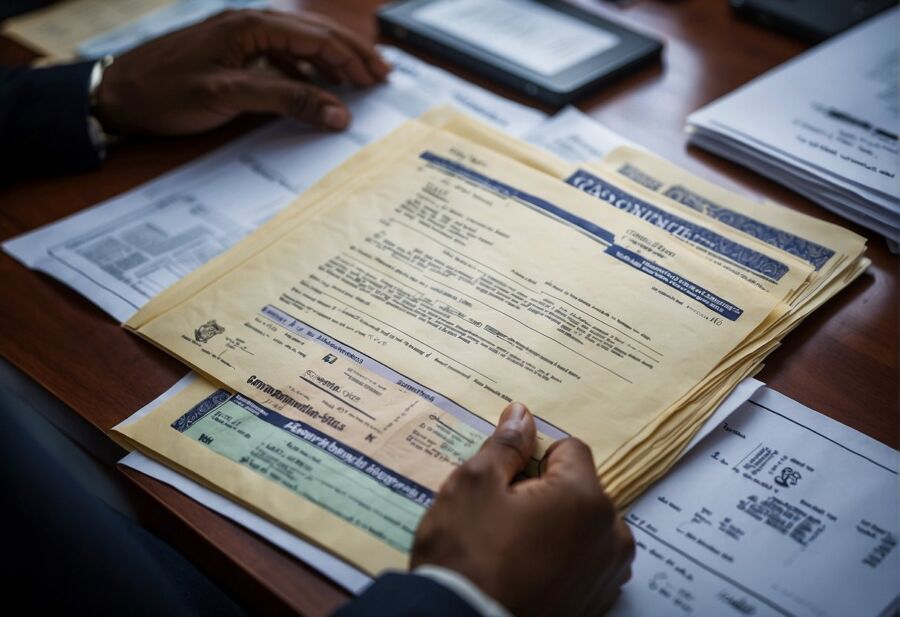
The visa application process for Bangladeshi passport holders involves gathering required documents, including a completed application form, photos, travel itinerary, accommodation details, and proof of financial means. Fees are applicable and must be paid at the time of application submission.
Travelers should be mindful of the processing time which generally takes 15 days; however, it’s recommended to apply well before the planned travel date, as during peak times, the processing can extend up to 30 days or more. Upcoming policy changes also indicate that by May 2025, even nationals of countries with a visa-free regime with the EU will need to obtain an ETIAS (European Travel Information and Authorization System) authorization before their journey.
With careful planning and an understanding of the Schengen visa requirements and processing times, Bangladeshi tourists and business travelers can prepare for a seamless journey. It is always prudent to stay updated with the latest visa regulations and procedures, as these could be subject to changes due to evolving diplomatic relations or global events. As a nation with a growing interest in global connectivity, both in business and leisure, Bangladeshi applicants stand to benefit from familiarizing themselves with these European travel requirements.
Table of Contents
- Eligibility Criteria for Bangladeshi Citizens
- General Requirements
- Visa Types and Purpose of Travel
- Application Process Overview
- Starting the Application
- Completing the Application Form
- Document Submission
- Scheduling an Interview
- Required Documents for Application
- Valid Passport and Photographs
- Travel Itinerary and Insurance
- Proof of Accommodation
- Financial Means and Fee Payment
- Special Conditions and Considerations
- Minors Traveling
- Family Members of EU Residents
- Applying for Multiple-Entry Visa
- Visa Appointment and Interview
- What to Expect
- Common Interview Questions
- Processing Time and Visa Issuance
- Standard Processing Times
- Tracking the Application
- After the Visa Decision
- In Case of Approval
- Handling Rejection and Appeals
- Rules and Regulations After Arrival
- Stay Duration and Visa Validity
- Traveling Between Schengen Countries
- Reporting and Residence Requirements
- Additional Information
- Consulates and Embassies in Bangladesh
- Tips for a Successful Visa Application
- Book Your Dream Experience
- More Travel Guides
Eligibility Criteria for Bangladeshi Citizens
Bangladeshi citizens must meet specific eligibility criteria when considering a trip to the Schengen Zone. Depending on the travel purpose, which can range from tourism to business, different visas might be necessary.
General Requirements
Key requisites for Bangladeshi passport holders include:
- A valid Bangladeshi passport with at least two blank pages and validity extending three months beyond the intended stay.
- A completed and signed application form.
- Two recent passport-sized photographs conforming to Schengen standards.
- Travel itinerary: confirmed round-trip ticket reservations, with dates and flight numbers specifying entry and exit.
- Proof of accommodation: hotel booking or invitation letter if staying with a family member.
- Travel insurance with a minimum coverage of 30,000 euros for medical emergencies and repatriation.
- Proof of financial means: bank statements or a letter from a sponsor.
- A no-objection certificate from your employer or educational institution if applicable.
- Visa fees receipt confirming payment.
The Schengen Area may request additional documents based on the specific country’s consulate or for applicants under certain categories such as minors or retirees.
Visa Types and Purpose of Travel
Visa type determination is rooted in the travel’s purpose:
- Tourist Visa: Intended for travelers visiting for leisure or sightseeing.
- Itinerary of places planned to visit and any booked tours.
- Proof of funds to sustain the duration of stay.
- Business Visa: For those aiming to engage in business-related activities.
- Invitation from a company based in the Schengen Zone.
- A letter from the Bangladeshi company clarifying the nature of the business visit.
- Visa for Visiting Family or Friends: Necessary when visiting family members residing in the Schengen Zone.
- Official invitation letter with a copy of the family member’s passport or residence permit.
- Study Visa: For educational purposes like short-term courses or research.
- Admission letter from the inviting educational institution.
- Work Visa: For those who have found employment in the Schengen Zone.
- Employment contract and a license to work in the destination country, if necessary.
Each visa encompasses different requirements reflecting the motive of the journey, yet the application process remains generally consistent across all Schengen countries.
Application Process Overview
For Bangladeshi citizens aiming to traverse Europe’s Schengen Area, navigating the visa application process is the initial step toward planning their journey. This comprehensive guide outlines the specific stages in the application process, from starting the application to securing an interview appointment.
Starting the Application
To initiate the Schengen visa application, individuals must first determine the most appropriate embassy or consulate at which to file their application. This is typically linked to the country that will be the primary destination or the first point of entry into the Schengen Area.
Completing the Application Form
The Schengen Visa Application Form must be filled out accurately and completely. All applicants are required to provide personal, travel, and supporting documentation details within the form. It is essential to double-check the information for accuracy to prevent any delays or rejections based on erroneous entries.
Document Submission
A critical application phase involves compiling the Necessary and Supporting Documents. This dossier should include a valid passport, proof of accommodation, travel insurance, financial sustenance evidence, and any other requisite documents pertinent to the nature of the visit.
Scheduling an Interview
Finally, an appointment for a visa interview must be made at the designated embassy or consulate. This face-to-face meeting is vital for the consular officers to assess the applicant’s travel plans and intentions. During the interview, applicants are expected to present their documentation and answer questions regarding their proposed travel to the Schengen Area.
Required Documents for Application
When applying for a Schengen Visa, Bangladeshi passport holders must gather specific documents to meet the application requirements set by Schengen authorities.
Valid Passport and Photographs
Applicants must possess a current valid passport that extends at least three months beyond their intended stay in the Schengen Area. The passport should have at least two blank pages for visa endorsements. Additionally, two recent passport-sized photographs adhering to visa photo requirements must be submitted—the photos should ideally be taken within the last three months.
Travel Itinerary and Insurance
The application must include a detailed travel itinerary outlining planned destinations and dates. Proof of travel insurance is mandatory, with coverage of at least €30,000 for medical emergencies and repatriation for the entire duration of the stay within Schengen countries.
Proof of Accommodation
Documentation confirming your hotel reservation, or an invitation from a host residing in the Schengen Area is required. This serves as a proof of accommodation, assuring authorities of your arranged living arrangements during your visit.
Financial Means and Fee Payment
Evidence of sufficient financial means must be provided to cover the expenses of the stay. This can include bank statements or a sponsorship letter if someone else is financing the trip. The visa fee must be paid as part of the application process—ensure that the payment receipt is included in your application packet.
Special Conditions and Considerations
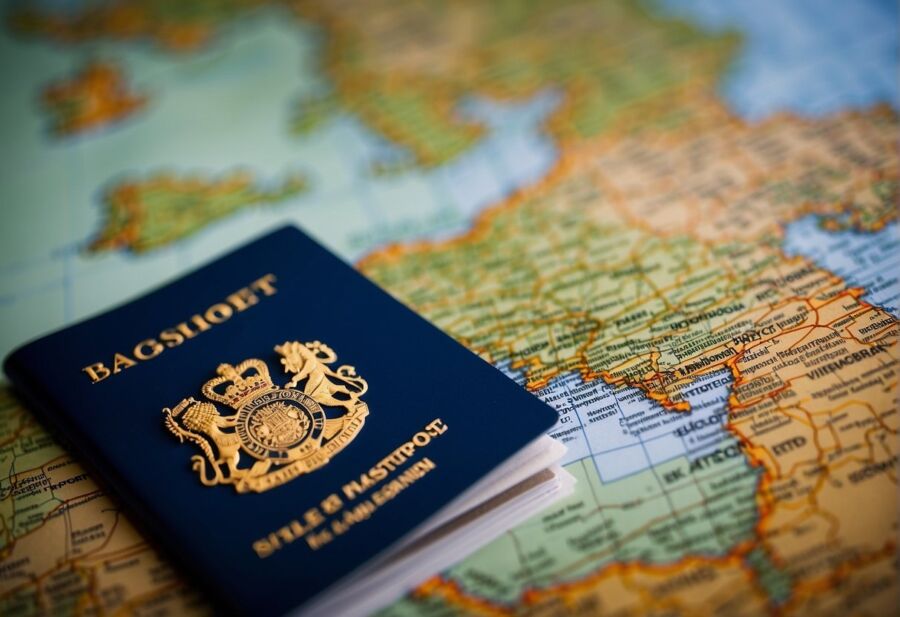
When Bangladeshi citizens prepare to apply for a Schengen visa, certain special conditions and considerations come into play, particularly for minors traveling, family members of EU residents, and those applying for multiple-entry visas.
Minors Traveling
Minors from Bangladesh intending to travel to the Schengen area must meet specific requirements. They should possess a valid application form signed by both parents or a legal guardian. Additionally, when traveling alone or with only one parent, a notarized birth certificate, along with consent from the non-traveling parent(s) or legal guardian, is usually required.
Family Members of EU Residents
Family members of EU residents have a unique set of requirements. If they are Bangladeshi nationals, they must provide proof of the relationship, such as a marriage or birth certificate. In some cases, they might be eligible for an accelerated or less stringent application process.
Applying for Multiple-Entry Visa
Applicants seeking a Multiple-Entry Visa should demonstrate the need to travel frequently and reliably. This could include a history of previous visas and travel, as well as an itinerary of planned visits. Multiple-entry visas offer greater flexibility, enabling holders to enter and exit the Schengen zone several times over periods up to 90 days within any 180-day period.
Visa Appointment and Interview
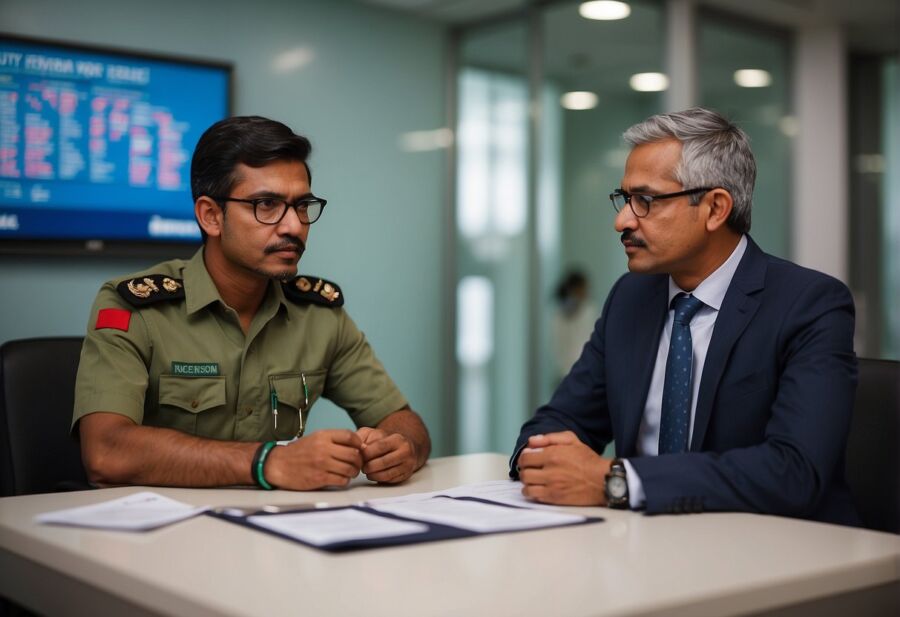
Securing a Schengen visa involves a critical phase of appointment scheduling followed by a personal interview with the visa officer. This stage is designed to verify the applicant’s details and travel itinerary.
What to Expect
Applicants from Bangladesh must book an appointment through the official channels of the specific Schengen country embassy or consulate they plan to visit or, for multiple destinations, the country where they will spend the most time. The interview is a face-to-face interaction with a visa officer, where the primary focus is on verifying your personal information, purpose of travel, and plans within the Schengen area. At the interview, applicants are evaluated for their credibility and travel intent.
The key aspects at this stage include:
- Confirmation of appointment date and time
- Arrival at the interview venue with all required documents
- A personal interview conducted by a consulate officer
A meticulous compilation of documents supports the applicant’s claims and intentions. Applicants should anticipate a professional setting where punctuality and preparedness are paramount.
Common Interview Questions
The visa officer may ask a variety of questions to ascertain the validity of the visa application. Common queries revolve around:
- Personal Information: This includes questions about your name, age, and employment status.
- Travel Plans: Details about your itinerary within the Schengen area, including dates and destinations.
- Accommodation: Where you plan to stay during your visit.
- Financial Means: Proof of funds to cover your expenses throughout the trip.
- Purpose of Visit: Whether the trip is for tourism, business, study, or other reasons.
Interviewees should answer all questions truthfully and with confidence, providing clear and concise information. It is advisable to practice responses to these common questions, although responses should remain spontaneous, honest, and personal to your situation.
Processing Time and Visa Issuance
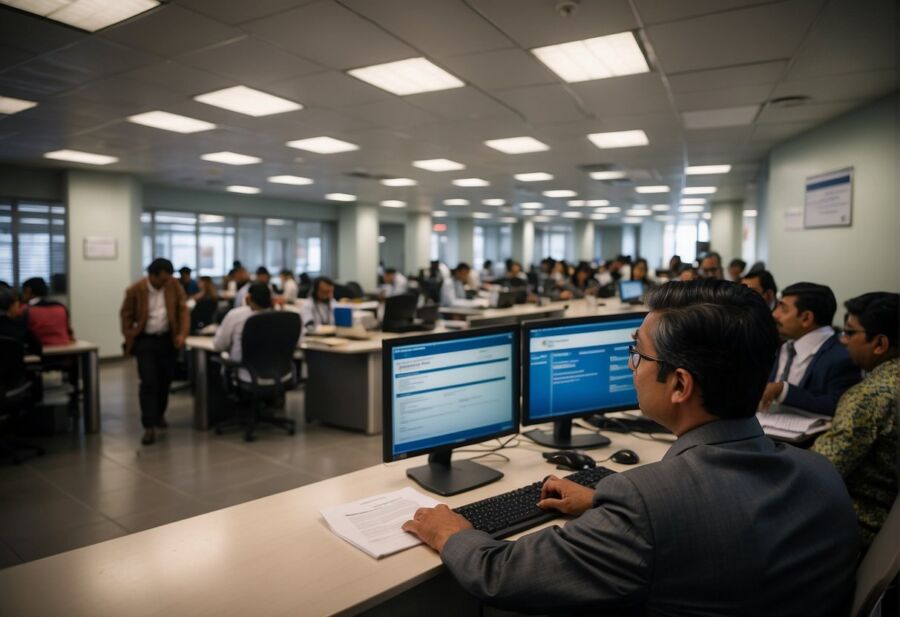
When planning a trip to the Schengen Zone, Bangladeshi passport holders must consider the visa processing time and the steps to track their application status. Embassies and consulates handle these procedures systematically to ensure a smooth experience for travelers.
Standard Processing Times
The process for issuing a Schengen visa typically adheres to a standard processing time of 15 calendar days. This period starts when the application is submitted to the respective embassy or consulate. However, applicants should be aware that this timeframe can extend to 30 days if additional documentation review is necessary.
- 15 Days: Normal processing timeframe from the application submission date.
- 30 Days: Extended processing timeframe during peak periods or for cases requiring further scrutiny.
Tracking the Application
Once the visa application is lodged, applicants can track the status of their paperwork. Most embassies and consulates provide online tools or contact numbers to facilitate application progress updates. Monitoring the status is crucial, especially if the processing time nears the extended 30-day mark.
- Online Tools: Often available on the official embassy or consulate website.
- Contact Numbers: Provided for direct inquiries regarding application status.
Embassies and consulates understand the importance of timely visa issuance, ensuring that travelers from Bangladesh can confidently plan their entry into the Schengen Zone.
After the Visa Decision
Upon receiving the outcome of a Schengen visa application, Bangladeshi passport holders will face one of two possibilities: approval for entry into the Schengen Area or denial with reasons provided. Understanding the next steps in either scenario is crucial for travelers.
In Case of Approval
When a Schengen visa is approved, the visa sticker affixed to the traveler’s passport contains essential details. This includes the validity period, which indicates the dates within which entry is permitted, and the duration of stay, specifying the number of days allowed within the Schengen countries. It is imperative for visa holders to:
- Enter the Schengen Area within the validity period.
- Comply with the allowed duration of stay to avoid overstaying, which has legal repercussions.
Awareness of these restrictions ensures respect for visa regulations and a trouble-free travel experience within Europe.
Handling Rejection and Appeals
In the event of a visa rejection, the consular office will provide a letter outlining the reasons for the denial. Applicants have the right to:
- Request a review of the decision if they believe it was unfairly made. This request must be submitted within a specified period, typically within 30 days of receiving the rejection notice.
- Appeal the rejection by presenting additional documents or information that counter the grounds for refusal.
Understanding the reasons for rejection is critical, as it allows the applicant to address specific concerns in their appeal. Successful appeals are contingent on adequately remedying the issues that led to the initial denial, highlighting the importance of a well-prepared and substantiated appeal submission.
Rules and Regulations After Arrival
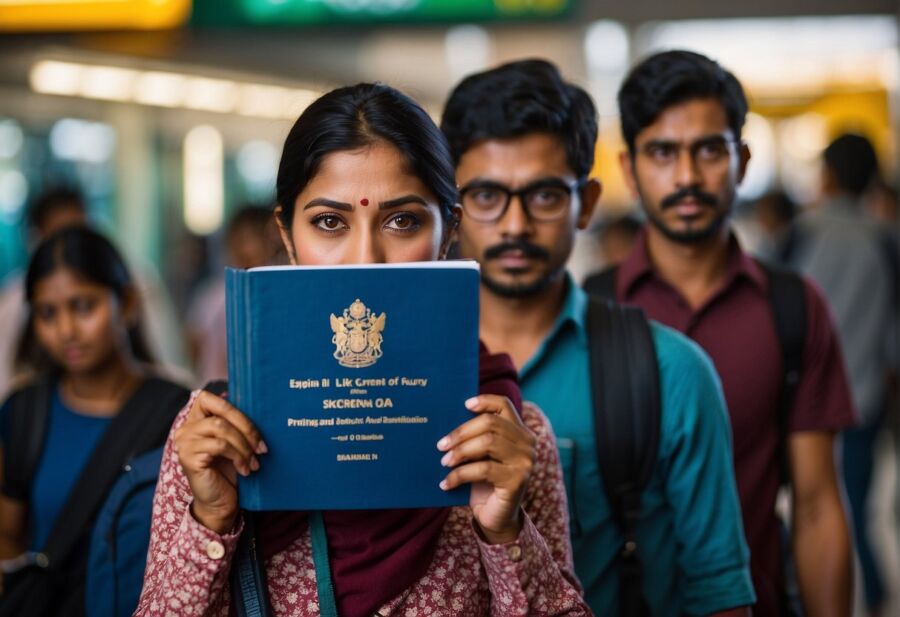
Upon their arrival in the Schengen Area, Bangladeshi citizens with a Schengen visa should be mindful of several critical rules and regulations to ensure compliance with the conditions of their stay.
Stay Duration and Visa Validity
It is paramount that visitors adhere to the stay duration specified on their visa, which commonly permits a stay up to 90 days within 180 days. The visa validity dictates the timeframe for the traveler to enter the Schengen Zone but does not automatically grant permission to stay for the entire validity period.
- 90 Days: Maximum stay allowed within six months.
- 180-Day Period: Calculated from the date of first entry, determining the revolving period for the 90-day allowance.
Traveling Between Schengen Countries
One benefit of the Schengen visa is the privilege of free travel between member countries without internal border checks. However, visitors must:
- Keep their passport and visa accessible.
- Note that some countries may have temporary border controls due to special circumstances.
Reporting and Residence Requirements
Certain Schengen countries require visitors to report to the local authority within a few days of arrival. Requirements may include:
- Registering one’s presence with the local police or relevant government office.
- If planning a stay in one country for more than 90 days, application for a residence permit or an extended visa is necessary.
Visitors should check with the embassy or consulate of the country they are visiting for specific post-arrival requirements.
Additional Information
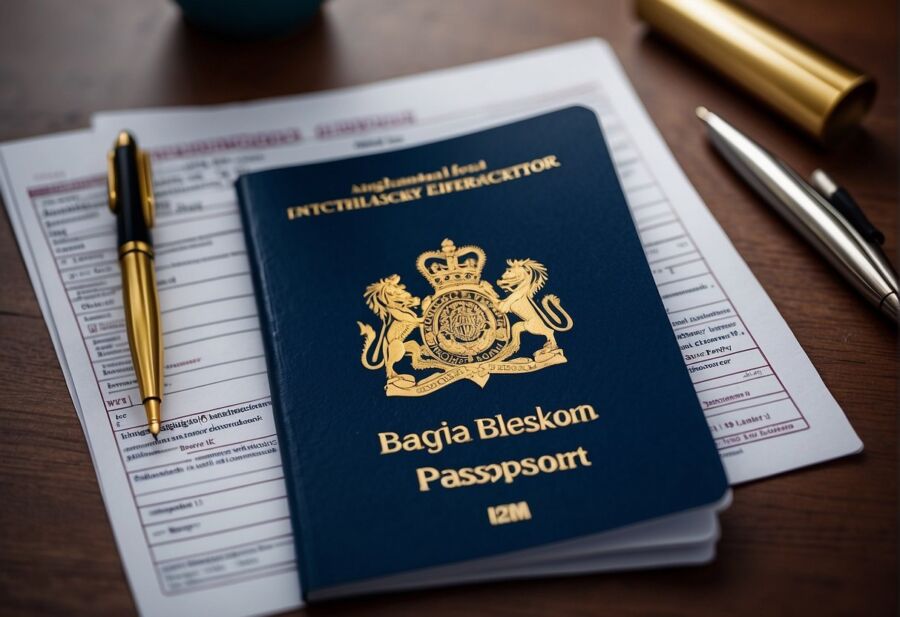
This section provides valuable insights regarding consular services available in Bangladesh for Schengen visa applicants and practical advice to enhance the chances of a successful application.
Consulates and Embassies in Bangladesh
Bangladeshi Passport Holders seeking to travel to the Schengen Area must be informed about the consular services offered within Bangladesh. The Embassy of the Federal Republic of Germany in Dhaka is pivotal for processing Schengen visa applications for Germany and often handles visas for other Schengen countries such as Estonia. Here’s a list of Schengen member state representations in Bangladesh:
- German Embassy: Represents Estonia for visa matters.
- French Embassy: Often handles visa applications for several Schengen countries.
Applicants are advised to check with the respective embassies or consulates regarding their jurisdiction and the countries they represent for visa matters.
Tips for a Successful Visa Application
For a fruitful visa application, meticulous preparation is key. Here are some tips:
- Complete Documentation: Ensure all required documents are accurate and complete. Missing or faulty information can lead to application rejection.
- Clarity and Honesty: Provide clear and honest personal information. Consulates value transparency and integrity in the application process.
- Application Timing: Apply well in advance of the intended travel date to accommodate any delays in processing.
By following these guidelines, Bangladeshi Passport Holders are more likely to receive a favorable outcome when applying for entry into the European Schengen Area.

